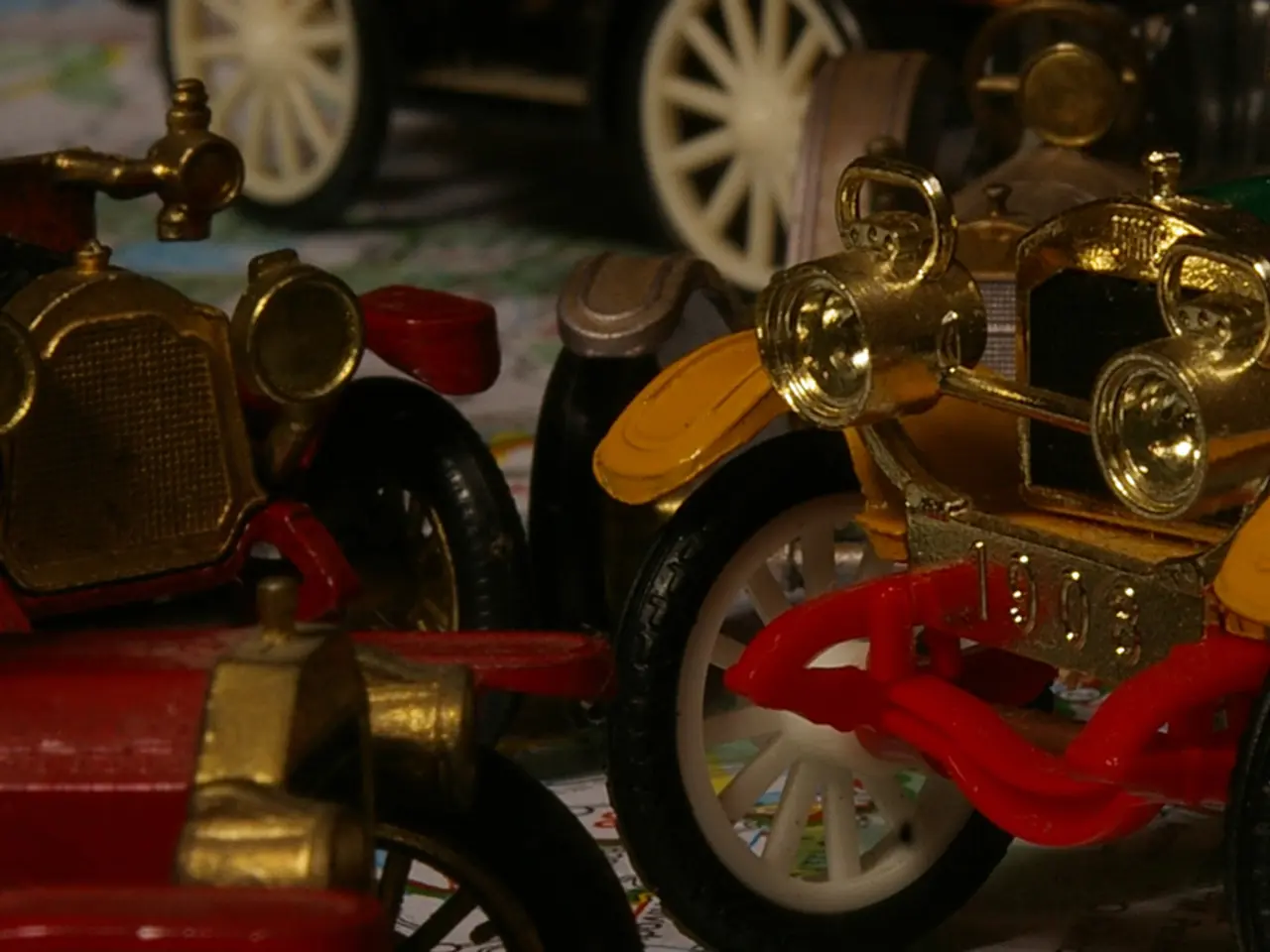Exploring the Impact of Concept Cars on the Automotive Landscape
Stunning Pioneer Vehicles in the Car Industry's Annals: A Ranking of the Most Awe-Inspiring
In the realm of automotive innovation, concept cars have long been a beacon of design and technological advancements. These experimental vehicles, created by manufacturers to showcase their creative vision, have played a significant role in shaping the future of the industry.
The roots of concept cars can be traced back to the late 1800s, as automotive design evolved from basic, boxy models to more stylish and aerodynamic forms. The Art Deco influence of the 1920s, for instance, left an indelible mark on the industry, paving the way for the sleek and sophisticated vehicles we see today.
Concept cars serve as a platform for automakers to push boundaries, experiment with new ideas, and gauge public reaction to radical styling or technology. They allow brands to explore the use of advanced materials, electric drivetrains, digital interfaces, and autonomous systems, often preceding these innovations in future production models.
One of the earliest concept cars was the 1938 Buick Y-Job, created by GM designer Harley Earl. Progressive for its time, the Y-Job combined contemporary features with new ones, such as hidden running boards, concealed headlights, and an electrohydraulic power convertible top. The positive public response to the Y-Job demonstrated the effectiveness of concept cars as a tool for brand promotion.
Another notable example is the 1994 Volkswagen Concept One, inspired by the classic air-cooled Volkswagen Beetle. The Concept One became an international sensation and was swiftly moved into production as the New Beetle, remaining in production for over a decade despite initial struggles in attracting male buyers.
More recently, the Jaguar C X75, a concept sports car with a hybrid electric powertrain, promised incredible performance and excellent fuel efficiency. Its unique powertrain, featuring four electric motors and two diesel gas turbines, charged the battery, making it a harbinger of the electric revolution in the automotive industry.
The 1980 Aston Martin Bulldog, with its motorized gullwing doors, luxurious interior, and a 5.3L twin-turbo V8 engine generating 650 horsepower, aimed for speeds exceeding 200 mph. Although it achieved a modest 192 mph during testing, the Bulldog's design and technology still left a lasting impression.
Concept cars have also had a direct influence on mainstream vehicles. For example, the Oldsmobile Profile from circa 2000 included several features ahead of their time, such as keyless entry and start, rotary shift knobs, Bluetooth hands-free phone systems, and internet connectivity. These technologies appeared years later in production cars like the Tesla Model X and Chrysler models, illustrating the direct influence of concept cars on mainstream vehicles.
The legacy of concept cars extends beyond stylistic trends to the technological systems that define modern vehicles. From the Bugatti 18/3 Chiron, a concept that previewed Bugatti’s later hypercar, the Bugatti Chiron, launched in 2016, to the Audi Rosemeyer, which helped shape Audi’s future sports car aesthetics and engineering focus, concept cars have played a critical role in the evolution of mobility.
While concept cars often take futuristic forms that are toned down for production, they continue to play a vital role as incubators of innovation in the automotive industry. The legacy of concept cars spans from stylistic trends to the technological systems that define modern vehicles, contributing substantially to the evolution of mobility.
In the automotive industry, concept cars facilitate experimentation with advancements in finance, as manufacturers invest heavily in research and development to pioneer cutting-edge technologies, such as electric drivetrains, digital interfaces, and autonomous systems.
These innovative ideas, showcased in concept cars, also influence the evolution of transportation, paving the way for more fuel-efficient and eco-friendly vehicles in the future of the industry.




